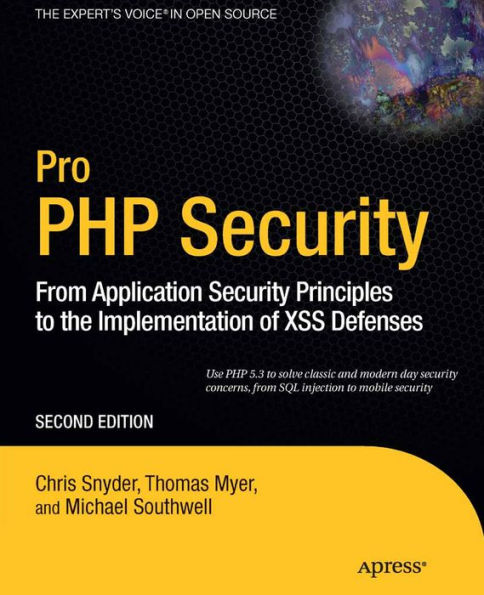5
1

Pro PHP Security: From Application Security Principles to the Implementation of XSS Defenses
368
Pro PHP Security: From Application Security Principles to the Implementation of XSS Defenses
368eBook (2nd ed.)
$52.49
$69.99
Save 25%
Current price is $52.49, Original price is $69.99. You Save 25%.
Related collections and offers
52.49
In Stock

Product Details
| ISBN-13: | 9781430233190 |
|---|---|
| Publisher: | Apress |
| Publication date: | 07/29/2011 |
| Sold by: | Barnes & Noble |
| Format: | eBook |
| Pages: | 368 |
| File size: | 1 MB |
About the Author
From the B&N Reads Blog
